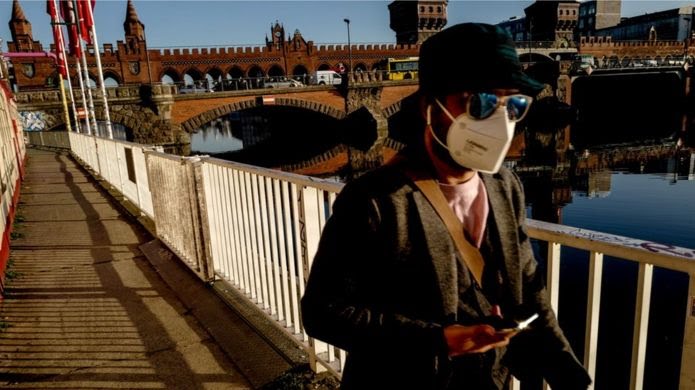Germany has extended its lockdown for three weeks, imposing an almost complete halt over the Easter holiday in response to a third wave of coronavirus infections.
After talks with regional leaders, Chancellor Angela Merkel said Germany was now in a “very serious” situation.
Restrictions will be even tougher from 1-5 April, when most shops will be shut and gatherings will be limited.
Meanwhile, France’s president wants vaccinations “morning, noon and night”.
Emmanuel Macron was responding to an increase in intensive care cases and warnings of an “explosion” in hospital admissions.
In contrast, the UK has managed to reduce its infection rate, attributing that to its tough lockdown and large-scale vaccinations.
Spain says it will allow British travellers back in from 30 March, easing a restriction in place since 22 December. That restriction only allowed in Spanish nationals and residents arriving from the UK. But the UK currently bans foreign holidays, so there will be no rapid revival of Spanish tourism.
Why Germany is imposing toughest measures so far
“Essentially, we have a new virus,” Chancellor Merkel said after marathon talks with the leaders of Germany’s 16 states. The highly contagious UK (Kent) variant of coronavirus had become dominant in Germany, she explained, plunging the country into “a new pandemic”.
It is much deadlier, much more infectious and infectious for much longer. Germany was in a race against time to vaccinate against the coronavirus, she added.
Tuesday’s lockdown extension to 18 April marks a reversal from earlier this month, when state leaders agreed to begin a cautious reopening process.
For five days over Easter from 1 April, Germans are being asked to stay at home and reduce contacts:
In-person religious services are cancelled
Big family gatherings are banned, with no more than two households, or up to five people, allowed to meet
All shops are shut, apart from food shops on Saturday 3 April.
The heads of Germany’s Catholic and Protestant Churches expressed dismay over the ban on Easter church congregations. They argued that their existing social-distancing measures made church attendance safe, German ARD news reported.
The infection rate has risen above 100 per 100,000 inhabitants in Germany. A further 7,485 infections have been reported in the past 24 hours, as well as 250 deaths. An “emergency brake” will halt further re-openings in areas where infections exceed 100 new cases per 100,000 people over a seven-day period.
Source:BBC





